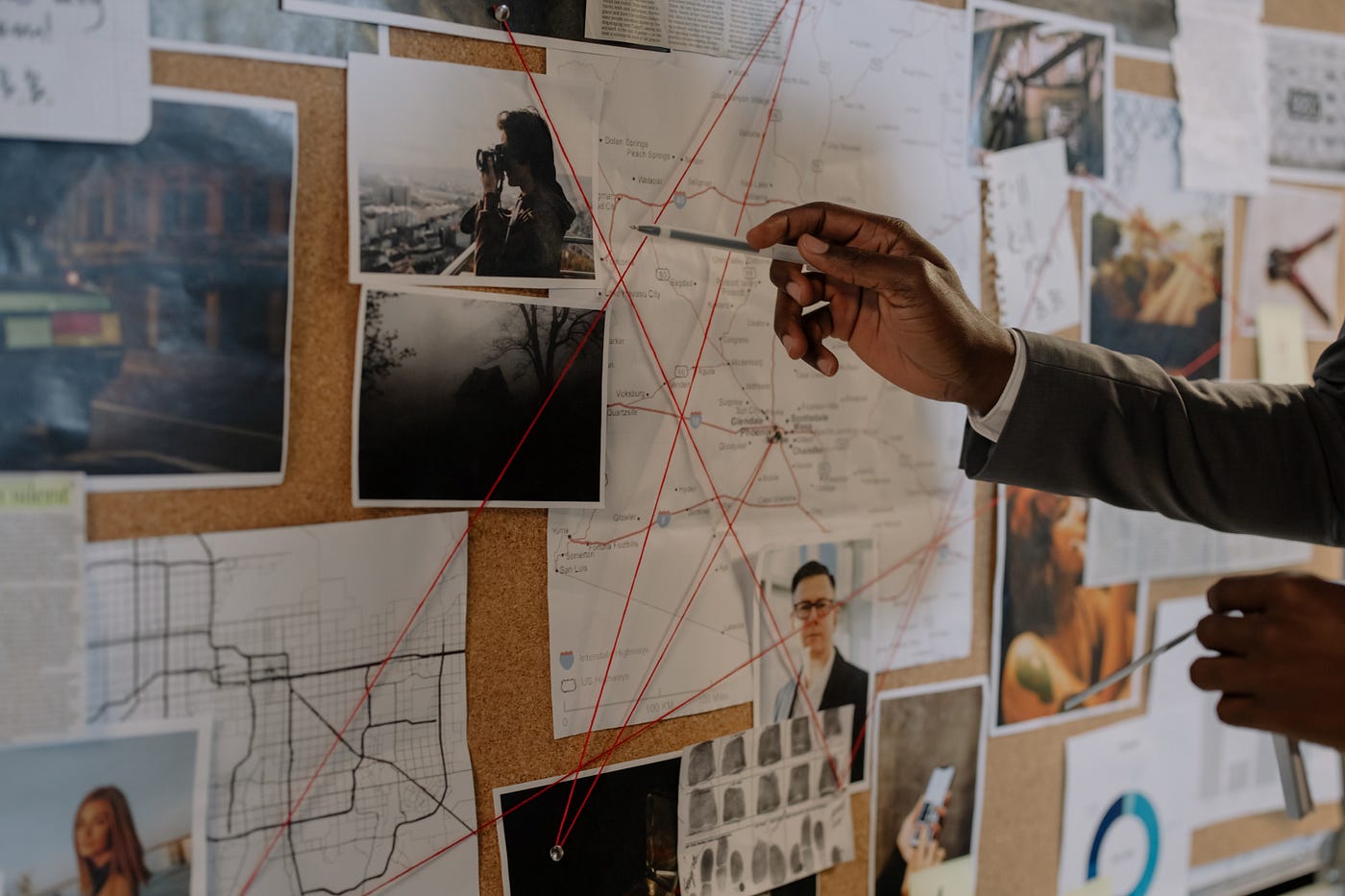Research shows that people in power are the most likely to put the onus on individuals while disregarding the context

If you decide to go on a killing spree, it’s because you’re evil, crazy, or both. That line of reasoning may seem pretty normal in the U.S. But that’s not necessarily the case elsewhere.
The not-so-fundamental attribution error

When mass shootings happen in the U.S., the popular rhetoric, especially on the conservative side, is that the person had evil in their hearts. And that they would have found other ways to kill even if they didn’t have access to guns. The individual is to blame, period. Context doesn’t matter.
This cognitive bias is called the Fundamental Attribution Error (FAE), otherwise known as the Correspondence Bias.
So what is the FAE?
Say there’s a car speeding down the highway at 120 mph. Your first reaction is: “What a crazy driver!”
Or, say you read about a mass shooting in the newspaper. Your first reaction is: “How can someone be so evil??”
Why do you think the driver was speeding down the highway? Why do you think the perpetrator killed multiple people?
If you blame the person — whether it’s his personality, attitude, and preferences — without considering how contextual factors could have made him behave that way, then you are committing the FAE.
In other words, the FAE is the cognitive tendency to under-emphasize situational factors while over-emphasizing the person’s inherent traits.
Here’s an alternative reaction:
Say there’s a car speeding down the highway at 120 mph. Your first reaction is: “I wonder why he is driving so fast? Maybe he’s rushing to the hospital because his wife is in labor?”
Or, say you read about a mass shooting in the newspaper. Your first reaction is: “What could have driven him to carry out such terrible acts??”
These are very different reactions that will likely lead you to very different conclusions about the event.
Research tells us that people from individualistic cultures like that of the U.S. are much more likely to commit the FAE. They tend to attribute the cause of an event or a phenomenon to the individual rather than on circumstances. This is true regardless of whether the event or phenomenon is positive, negative, or neutral.
Americans tend to celebrate individual success and punish individual failure without giving much thought to the context.
Why Americans blame the individual

Why would this be the case? Why is individualism linked to the FAE? One key reason is that people from individualistic cultures and collectivistic cultures pay attention to the world differently. So it’s not that people from collectivistic cultures aren’t susceptible to the FAE — they’re just much less likely to commit it.
Here’s a simple but elegant empirical study that illustrates this cultural difference in perception. Researchers had Japanese and American participants look at an underwater scene. When asked to recall what they saw, Japanese participants provided more detail about the context than did their American peers:
- They remembered what was in the background (as well as the focal objects).
- They made more time-related comments (e.g. “at the beginning of the animation…”) and feeling-related comments (e.g. “the red fish must be angry because its scales were hurt”).
- They also made more behavior-related observations (e.g. “a frog is climbing on seaweed,”) and spatial-relational observations (e.g. “the fish was near the shells”).
- Americans, on the other hand, tended to focus on the big, colorful focal fish and simply describe the physical appearance of the objects (e.g. “there is a frog.”).
As we can see, people from individualistic cultures tend to engage in a decontextualized kind of thinking. They think of themselves as being separate from others and from the environment. They also think objects and events are distinct and don’t really affect each other. These are not just neutral beliefs that happen to be a part of the culture. In fact, they are tied to key individualistic values such as independence and freedom (and free will). These values imply that people have the right to be different. That it’s a good thing not to be swayed by context. That people have agency.
In contrast, people from collectivistic cultures — such as those of Japan, China, or Native American tribes — commit the FAE far less because they tend to believe that context matters, and as a result, pay attention to it more. Because they see themselves as being part of a larger group, they understand that situational factors like relationships and the role they play in a specific context affect their thoughts and behaviors. Similarly, they understand that circumstances influence objects and events. These beliefs are tied to collectivistic values such as interdependence, cohesion, and social harmony. People are expected to be — supposed to be — sensitive to context. If your behavior is fixed regardless of context (if you can’t “read the air,” as the expression goes in Japanese, for instance), you’re considered immature.
Let’s go back to the mass shooting example. Researchers found that when they looked at how mass shootings are reported in the news, American journalists blamed the perpetrator much more than Chinese journalists did. Meanwhile, Chinese journalists attributed the crime more to situational factors than did their American peers.
They also found a similar pattern among readers. American readers weighed personal characteristics as being more important than Chinese readers did, while Chinese readers weighed situational factors as being more important than American readers did.
The researchers also discovered something troublesome. Americans were much more likely to commit what they called the Ultimate Attribution Error. They were much more likely to blame the perpetrator’s inner traits more and discount circumstantial factors when the perpetrator was an outsider — in this case, a Chinese individual. They didn’t find this effect among Chinese individuals.
A possible explanation for the Ultimate Attribution Error among Americans is that when they feel that they don’t understand the perpetrator, they focus even more on what they do know, which is that the perpetrator committed a crime. So when the perpetrator is a foreigner (or some outgroup member), the tendency to commit the FAE is even stronger. The implications of this are chilling given the continuing rise in racism, othering, and tribalism in the U.S.
Another highly troubling research finding: High-status people in individualistic cultures tend to be the most prone to decontextualized thinking. Translation: The people who run America — the policymakers — are the most likely to place blame on individuals while paying little attention to circumstances.
The FAE is not human nature

In light of the perpetual waves of mass shootings that continue to plague the U.S., we shouldn’t gloss over these research findings.
The sad truth is that researchers have known about this American inclination to commit the FAE for decades. But the media narrative remains the same.
If anything, the situation is getting worse. The media has stopped providing much detail about the perpetrator, thanks to the societal pressure to not glorify the perpetrator. This makes sense in its own right, but the unintended consequence is that we now know less about the situational factors that may have led them to commit the crime.
When we have less knowledge about the contextual similarities across perpetrators, it gives the public more reason to blame the individual (think back to the earlier discussion about the American tendency to commit the Ultimate Attribution Error).
The U.S. needs to acknowledge that the over-focus on the individual perpetrator is a key part of the problem. If people continue to focus on individual perpetrators while ignoring the systemic, contextual factors that enable (i.e. the easy availability of guns) and push (i.e. the consistent lack of access to quality mental healthcare, decent economic opportunities, and a reliable social safety net) these individuals to commit mass shootings, we will never solve the problem.
If we keep blaming individual perpetrators without paying serious attention to the context, meaningful gun reform will not happen.
More innocent lives will be taken.
More families and communities will be broken.
And the negative cycle will continue. When families and communities are destroyed, it leads to more mental health issues, more violence, and more crime.
So how can we start to change America’s extreme susceptibility to the FAE?
- We — especially lawmakers and law enforcement — first need to acknowledge that this cognitive bias exists but that it is not human nature: It is not wired into us. It is a product of culture, which means that it can be changed. Unfortunately, the neoliberal ideology — the idea that people get what they deserve — makes the “blame the individual” mentality seem natural. It makes the FAE seem like the right way to think about the world.
- We need responsible, balanced reporting from the media: Providing information and context about the perpetrators is not the same as celebrating them or alleviating their responsibility. We can discuss the systemic issues that contribute to the mass shooting epidemic without glorifying the shooter.
- We — especially lawmakers and law enforcement — need to better understand the perpetrators: Writing the perpetrators off as evil and crazy and locking them up is too simplistic and unproductive. Instead, what we need to do is try to put ourselves in their shoes to shed light on why they committed these crimes. This is not the same as feeling sorry for them or providing excuses for them at all. The objective is to prevent these horrific crimes from happening again.
Taking a more holistic approach to crime — one that incorporates contextual factors — is not the same as being soft on crime. Rather, it will help us create a safer, socially sustainable society more effectively, because we will gain a better understanding of what needs to change.
Changing people’s minds — and how an entire society operates — is never easy, of course. But it has been done before, and it can be done again. We just need to stop focusing only on the big, focal fish and look at the seaweed and small fish in the background as well.